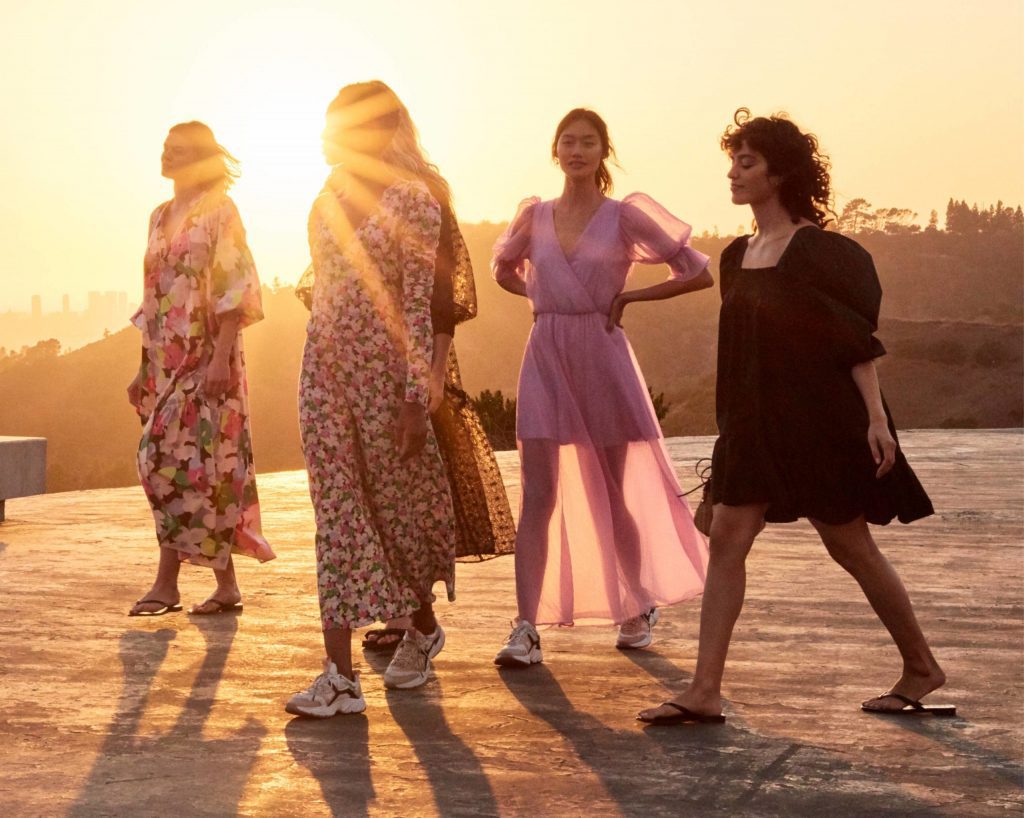The Supreme Court handed H&M a loss on Thursday, vacating a lower court decision that sided with the Swedish fast fashion giant in a copyright case that pitted it against pattern-making company Unicolors. In a 6-3 decision authored by Justice Breyer, the court held that the U.S. Court of Appeals for the Ninth Circuit erred in distinguishing between mistake of law and mistake of fact in siding with H&M in May 2020. The fast fashion titan had appealed to the Ninth Circuit, arguing that Unicolors lacks a valid copyright registration for the fabric pattern at the center of the case because Unicolors had improperly used a single application to register 31 separate works.
Despite claiming that all of the individual patterns were published together, making them an appropriate “single unit” for one collective application and registration, H&M claimed that Unicolors actually sold some of the patterns separately to different customers – at different times, thereby, making the company’s registration invalid.
Unicolors v. H&M: The Ninth Circuit
In its decision, the Ninth Circuit reversed a jury verdict that determined that Unicolors’ copyright was still valid under safe harbor provisions. Siding with H&M, the appeals court held that the lower court misinterpreted the requirements of 17 U.S.C. § 411(b), an amendment to the Copyright Act that established that a copyright can be invalid if inaccurate information is included in the copyright application “with knowledge” that it was inaccurate. Unpersuaded by Unicolors’ claim that it had no intent to deceive because the inaccurate information in the application was based on its misunderstanding of the law, the Ninth Circuit held that the safe harbor excuses only good-faith mistakes of fact, not law.
The § 411(b) safe harbor states that a certificate of registration is valid “regardless of whether the certificate contains any inaccurate information, unless: (A) the inaccurate information was included on the application for copyright registration with knowledge that it was inaccurate; and (B) the inaccuracy of the information, if known, would have caused the Register of Copyrights to refuse registration.” (As Loeb & Loeb’s Tal Dickstein and Lisa Rubin noted at the time of the appeals court’s decision, “The Ninth Circuit held that whenever a defendant alleges that a plaintiff’s registration contains inaccurate information that the plaintiff knowingly included in its application, Section 411(b)(2) requires district courts to ask the Register of Copyrights whether registration would have been refused if the Copyright Office had known the information was inaccurate.”)
According to the Ninth Circuit because Unicolors had known the relevant facts, its knowledge of the law (or lack thereof) was irrelevant.
Unicolors subsequently filed a petition for a writ of certiorari, claiming that the Ninth Circuit panel’s ruling concerning applicability of 17 U.S.C. § 411(b) was flawed, as “many courts, legislative and administrative authorities, and the leading copyright treatise have uniformly interpreted” it to “allow invalidation under section 411(b) only when the registrant is shown to have acted in bad faith or intended to defraud the Copyright Office.”
The Supreme Court’s Decision
Writing for the majority, Justice Breyer cited the text of section 411(b), which “says that Unicolors’ registration is valid ‘regardless of whether the [registration] certificate contains any inaccurate information, unless . . . the inaccurate information was included on the application for copyright registration with knowledge that it was inaccurate.'” That language of the safe harbor is met, according to the court, given that “Unicolors says that, when it submitted its registration application, it was not aware (as the Ninth Circuit would later hold) that the 31 designs it was registering together did not satisfy the ‘single unit of publication’ requirement.”
“If Unicolors was not aware of the legal requirement that rendered the information in its application inaccurate,” Justice Breyer asserts that the company “did not include that information in its application ‘with knowledge that it was inaccurate.'” He further states that “nothing in §411(b)(1)(A) suggests that the safe harbor applies differently simply because an applicant made a mistake of law as opposed to a mistake of fact.” And in fact, “to the contrary, nearby statutory provisions” – namely, other provisions of the Copyright Act – “help confirm that here ‘knowledge’ refers to knowledge of the law as well as the facts.”
Moreover, Justice Breyer stated, “Inaccurate information in a registration may arise from a mistake of law or a mistake of fact, [and] nothing in the statutory language suggests that Congress wanted to forgive applicants—many of whom lack legal training—for factual but not (often esoteric) legal mistakes.” And still yet, he held that “if Congress had intended a scienter requirement other than actual knowledge, “it would have said so explicitly, as it did in other parts of the Copyright Act.”
With the foregoing in mind, Justice Breyer stated that the judgment of the Ninth Circuit is vacated, and the long-running Unicolors, H&M case is remanded for further proceedings.











